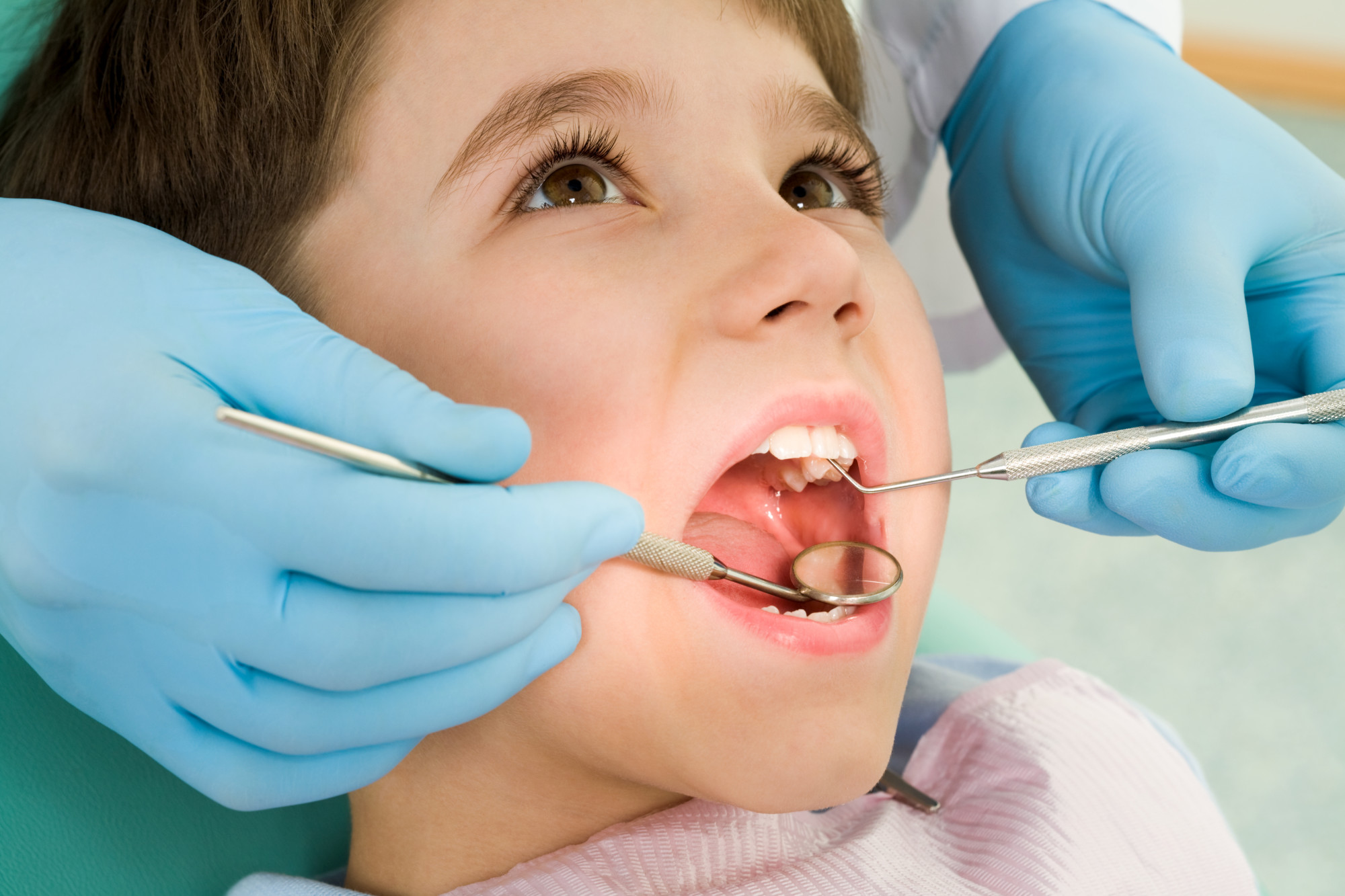
Close-up of little boy opening his mouth wide during inspection of oral cavity
Did you know that American children consume 17 teaspoons of added sugar per day? With a recommended limit of no more than 12 teaspoons, American children are eating way more added sugar than they should.
Besides a host of other health problems, eating too much sugar can contribute to poor outcomes for your children’s teeth. And this is just the beginning! Children’s diets play a huge role in their dental health and long-term oral health outcomes.
If this is new information to you, don’t worry. Keep reading to learn all the ways that diet and nutrition can affect oral health for children.
How Diet and Nutrition Affect Children’s Teeth
One of the biggest culprits in developing a cavity in children’s teeth is too much added sugar. Limiting the amount of added sugar your children eat in a day can make a huge difference to their oral health.
This includes limiting your children’s intake of sweet foods and sugary sodas. It also means avoiding putting your children to sleep with a bottle full of juice. Even milk in a bottle overnight can coat your children’s teeth with sugar and leave them with cavities down the road.
Avoid this possibility by making sure that your children are eating plenty of fruits and vegetables throughout the day. These crunchy foods fight plaque buildup to protect against cavities and gum disease.
Additionally, feed your child a diet full of vitamins and minerals, particularly calcium. Calcium contributes to bone strength and has the added benefit of being good for heart health. Offer your child plenty of milk, cheese, leafy greens, and whole-wheat bread to make sure they’re eating a calcium-rich diet.
Finally, help your child avoid eating too many refined carbohydrates throughout the day. It’s true that some carbohydrates are necessary to maintain a well-rounded diet. But foods like potato chips provide a feast for the bacteria in your children’s mouths, increasing their risk of developing dental health issues down the line.
Behavioral Tips for Maintaining Healthy Teeth
Any article about dental hygiene would be incomplete without mentioning the behaviors associated with strong dental hygiene. Along with monitoring your children’s diets, teach them how to effectively brush their teeth twice a day and floss at least a few times a week.
Myths abound where children’s dental health is concerned. These include the false beliefs that they don’t need to visit the dentist regularly or that they shouldn’t use fluoride toothpaste. Find out more about these myths so that you can avoid falling into their trap.
Say Goodbye to Poor Dental Hygiene
Making the slight diet changes listed above will make a huge difference to the health of children’s teeth. Even baby teeth play a role in a child’s long-term health, so starting these behaviors as soon as possible will pay off the most in the long run.
Interested in learning more about maintaining a healthy lifestyle? Check out the other articles in the health section of our site!
Leave a Reply